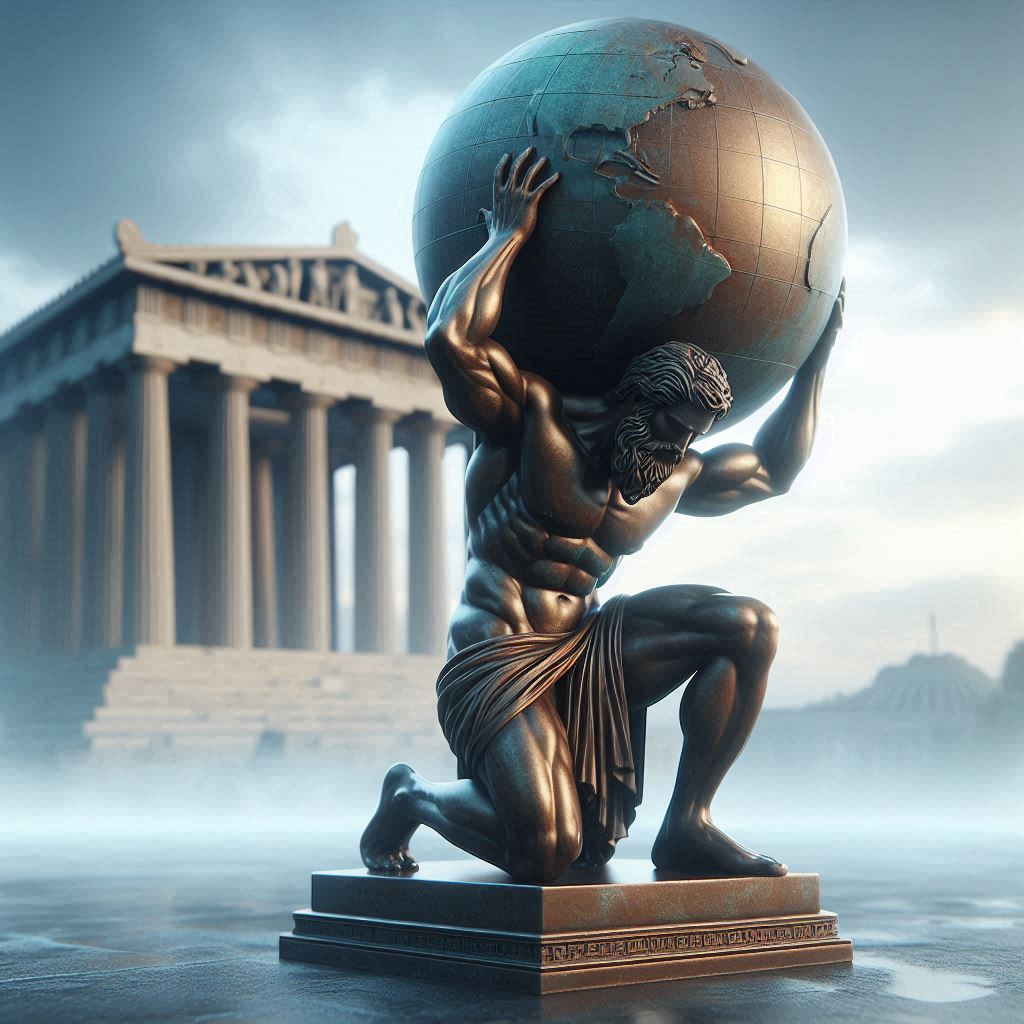The Titan Atlas: Bearer of the Sky and Symbol of Endurance
Table of Contents
- Introduction
- Who is Atlas?
- Atlas and the Titanomachy
- The Punishment of Atlas
- Atlas in Myth and Symbolism
- Conclusion
Introduction
In Greek mythology, the Titan Atlas is one of the most captivating figures, known as the burdened giant who carries the weight of the heavens on his shoulders. His story is steeped in themes of endurance, punishment, and resilience. This article explores the mythology, symbolism, and timeless appeal of Atlas, from his origins as a Titan to his lasting impact on art and culture.
Who is Atlas?
Atlas is one of the Titans, a race of powerful deities who existed before the Olympian gods and ruled during the Golden Age. According to myth, he is the son of the Titan Iapetus and the Oceanid Clymene, making him a sibling to other significant figures like Prometheus and Epimetheus. Unlike his brother Prometheus, who aided humanity, Atlas’s fate is marked by his opposition to the Olympian gods and his punishment that binds him to eternity.
Atlas and the Titanomachy
The Titanomachy, the great war between the Titans and Olympians, is a pivotal event in Greek mythology. During this ten-year battle, Atlas fought alongside the Titans against Zeus and the younger gods, hoping to retain the rule of the cosmos. His allegiance to the Titans marked him as an enemy of Zeus, and when the Olympians triumphed, Atlas received a unique punishment that would define his legacy.
Hercules (Heracles) taking Titan Atlas' place to obtain the Esperides apples.
The Punishment of Atlas
As punishment for his rebellion, Zeus condemned Atlas to carry the heavens on his shoulders. This iconic imagery, often misinterpreted as holding the earth, represents the colossal strength and resilience required to bear such a burden for eternity. Some myths recount how Heracles (Hercules), during his Twelve Labors, briefly relieved Atlas of this weight by taking on his burden to obtain the golden apples of the Hesperides. This encounter underscores Atlas’s struggle and adds depth to his myth, portraying him as both strong and cunning.
Atlas in Myth and Symbolism
Atlas's role as the bearer of the heavens has made him a powerful symbol of endurance. Through the centuries, his myth has been depicted in countless works of art, literature, and philosophy. The image of Atlas symbolizes human endurance, the weight of knowledge, and the relentless struggles we bear. Furthermore, in cartography, the term "atlas" reflects the idea of capturing and carrying the vastness of the world, inspired by his role as the cosmic bearer.
Conclusion
The myth of Atlas offers more than just a story of punishment; it is a rich symbol of endurance, strength, and the consequences of defying the gods. His legacy as the Titan who bears the heavens remains one of the most enduring tales from Greek mythology, inspiring both artistic and intellectual representations for centuries. By understanding Atlas, we gain insight into the complexities of myth and the timeless resonance of human resilience.


